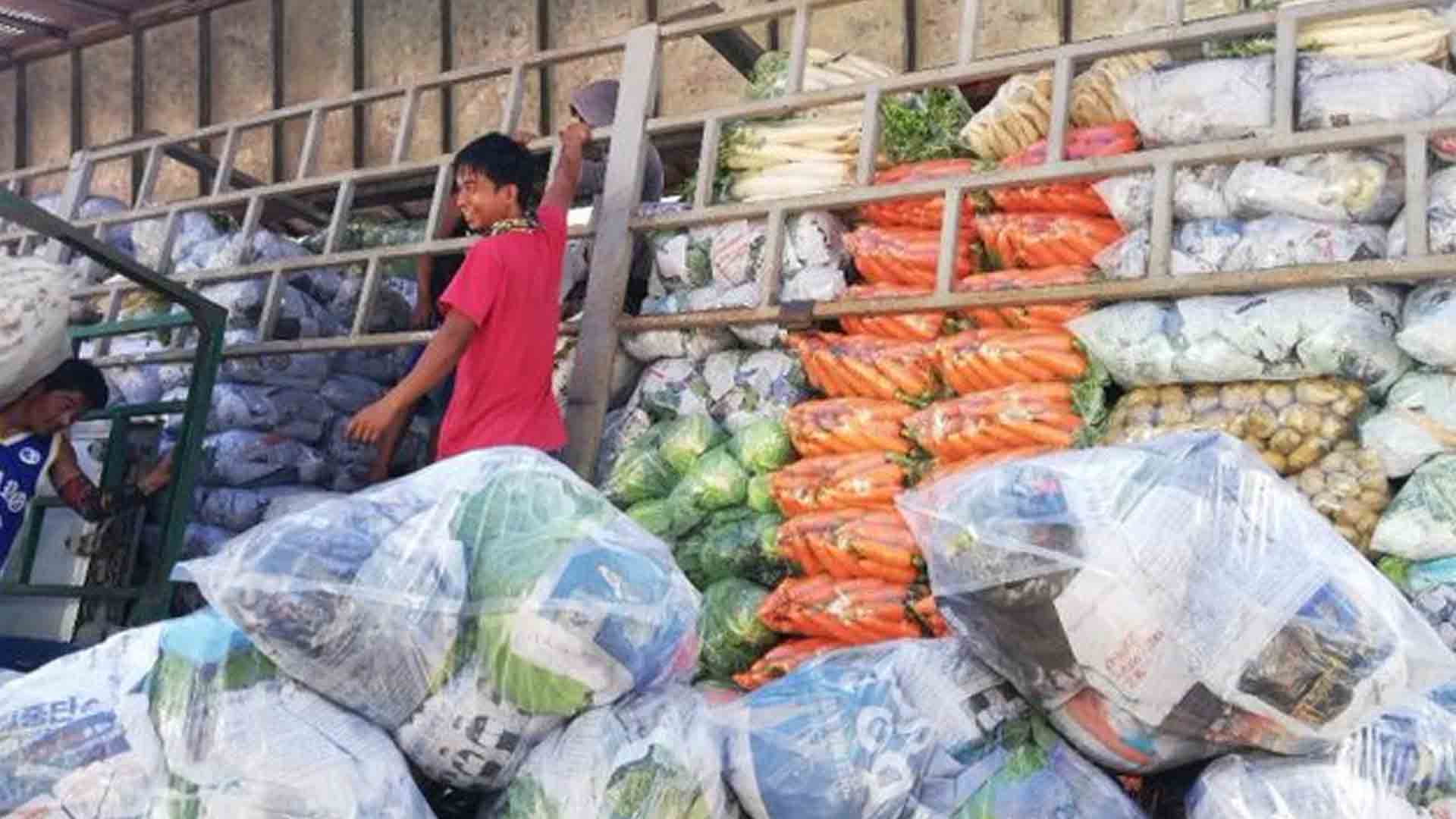The Department of Agriculture in the Cordillera Administrative Region (DA-CAR) on Monday assured the public anew that highland agricultural products, including vegetables like carrots, will come in abundant supply and within a steady price range.
“Maraming gulay at hindi bagsak ang presyo. Base sa monitoring natin, maganda ang selling prices sa mga nakaraang araw at hindi losing ang farmers natin (We have sufficient supply of vegetables and the selling prices of the products are good),” DA-CAR regional director Dr. Cameron Odsey said in a phone interview.
Odsey added that the government is continuously implementing measures to address the long-time problem of vegetable wastage and spoilage by helping market the products through linkages and market development, aside from aiding in the transport of the products.
He said the DA gives support to the marketing, selling, transport, and processing of agricultural products.
The DA has allotted an amount for the construction of a structure where processing equipment will be housed, and for the distribution of several delivery trucks to cooperatives and farmers’ associations that members can avail of.
In a separate statement released to the Baguio media also on Monday, the DA said it has been helping farmers bring their produce to the markets within and outside the region through the Kadiwa ni Ani at Kita.
The DA said that a total of 65,555 metric tons of agricultural produce amounting to PHP4,281,889 have been sold through the Kadiwa from January to May this year.
The agency also said that small vegetable farmers that do not have transport vehicles are also provided with logistics support through the farmer’s cooperatives and associations (FCAs).
“Since last year, nine FCAs and six local government units (LGUs) were provided with PHP39.3 million funds through the Bayanihan II and regular funds for the purchase of delivery vehicles,” it said.
At least 20 FCAs and one LGU have been provided with a total of PHP7.4-million seed capital in 2021 for the consolidation and marketing of the agricultural produce of their members.
The DA also assists cooperatives and farmers to be continuously linked to the private and institutional buyers for their produce.
The Benguet AgriPinoy Trading Center (BAPTC), a major trading center in the capital La Trinidad established through the DA’s help, has also been providing marketing and trading assistance to the farmers.
Odsey said there was no significant increase in the traded volumes of agricultural commodities in the past week with a total average of 240.75 metric tons traded daily.
Last week, a social media post went viral about a seller in Benguet who struggled to sell her carrots despite selling them for PHP10 per kilo.
The director’s statement said that the vegetable was not sold because it had arrived late in the afternoon and the buyers were looking for specific qualities of freshness and size.
Odsey said that based on the interview of the marketing office of the DA-CAR with the seller who posted on social media, a certain “Ms. Agapito,” the carrots were merely entrusted to her on March 25 by another farmer because he already had to return to his farm.
“The farmer who needs to go back to the farm to transport another load of vegetables entrusted his produce to Ms. Agapito. The latter, accordingly, tried to look for a buyer at the same price until May 28, Saturday, but there were no takers. To avoid their produce from being spoiled knowing that there were no sure buyers to purchase their remaining mixed carrots, Ms. Agapito shared that she decided to sell the carrots at a lower price in Cabanao, Balili, La Trinidad. She utilized her Facebook account for a faster sale. And by 1 p.m., all the remaining carrots were sold,” Odsey said.
“Most of the buyers are the people who read my post on social media and the passers-by,” Agapito reportedly said, according to Odsey. The DA official said Agapito was thankful to all the buyers and those who helped market the carrots online resulting in their complete purchase around an hour after posting.
Odsey said the story on the “unsold carrots” showed how enterprising farmers are to sell their produce, avoid spoilage, and get the maximum profit.
He urged the public to help the farmers and the agri-fishery industry by buying local products, including food items. (PNA)







